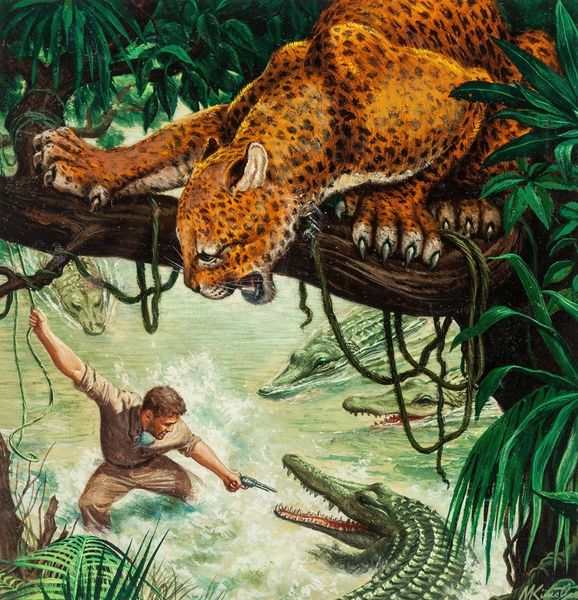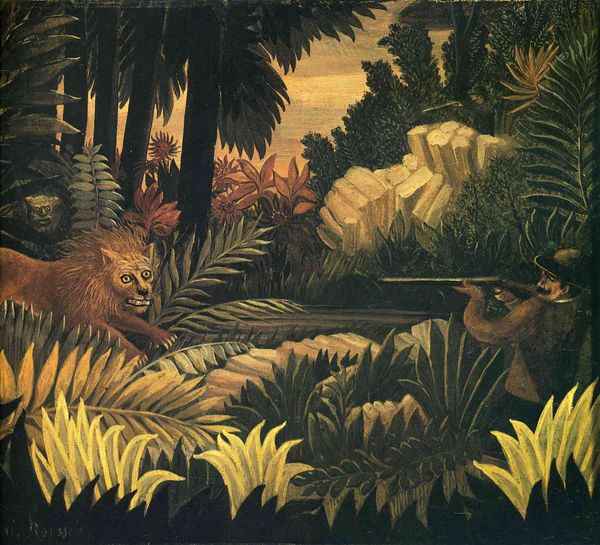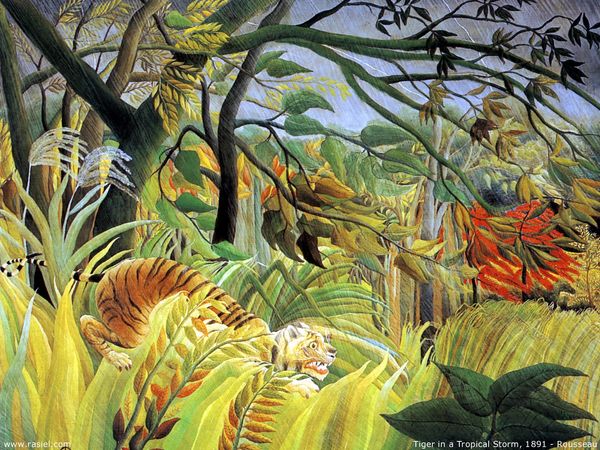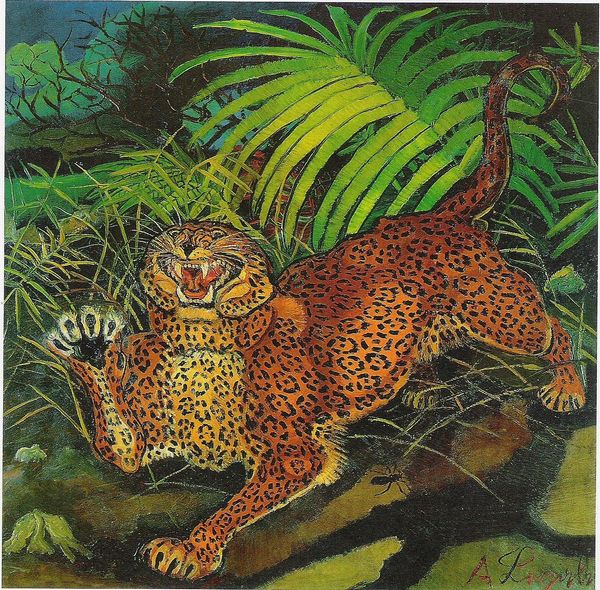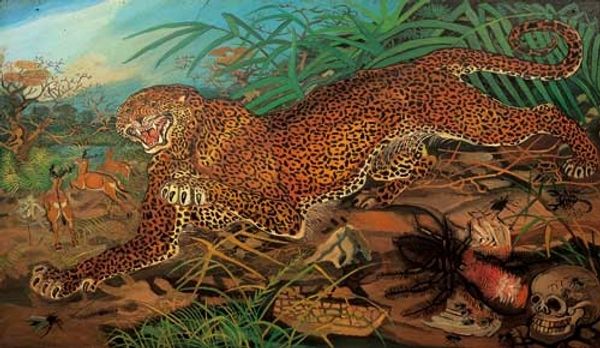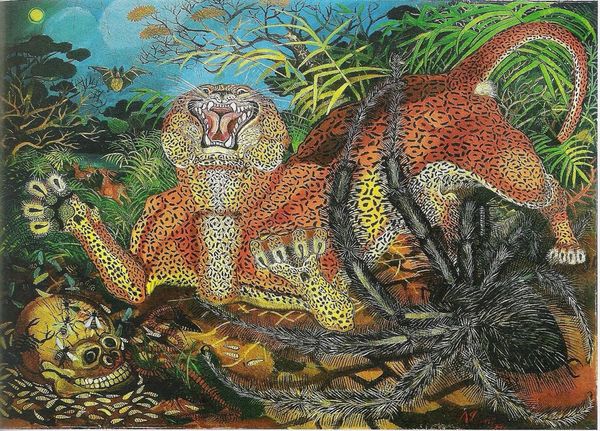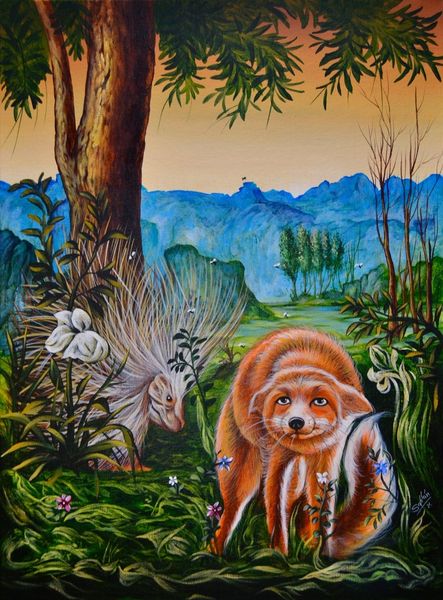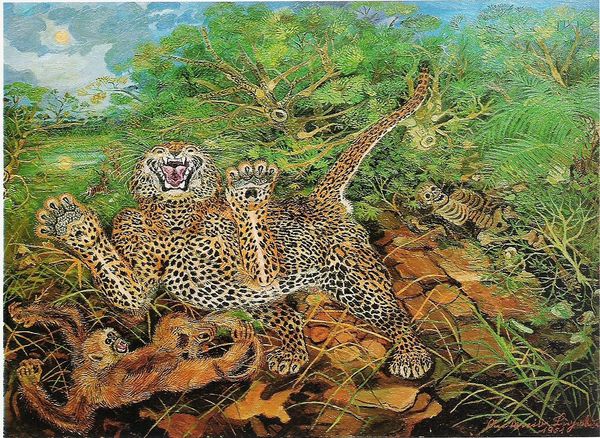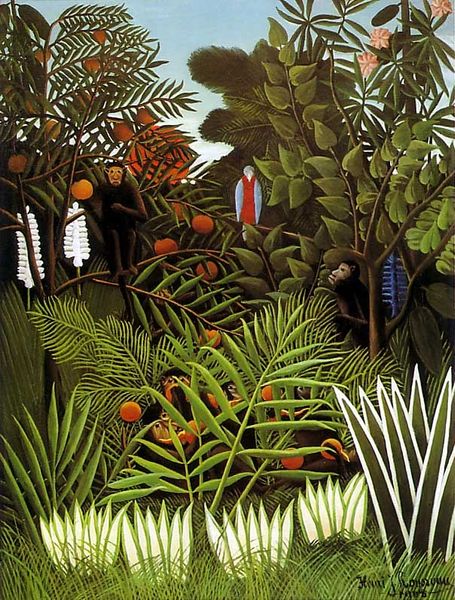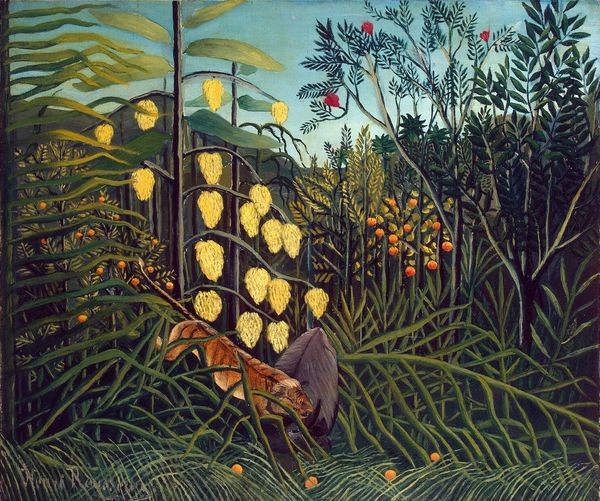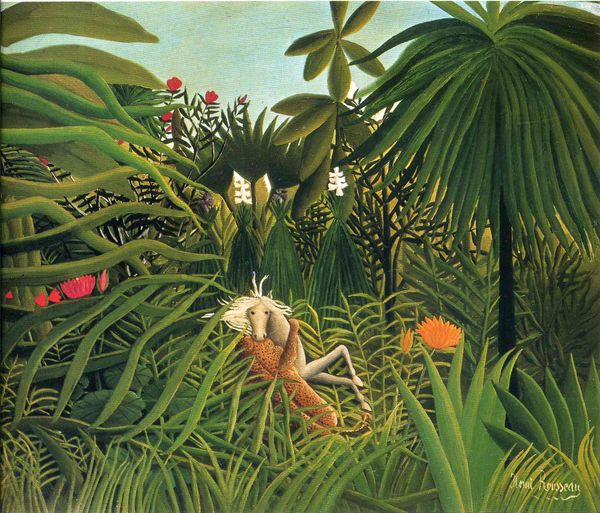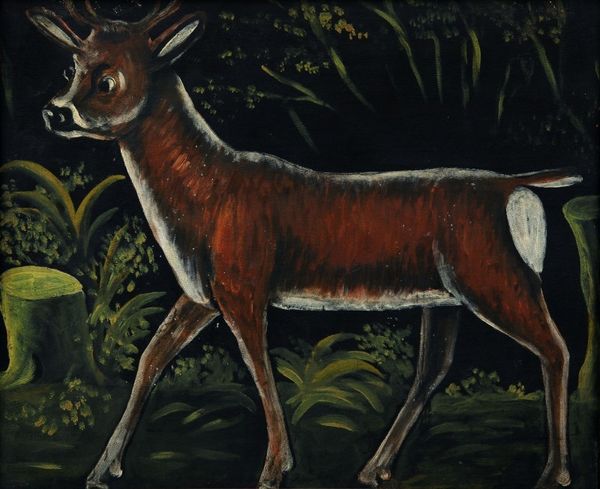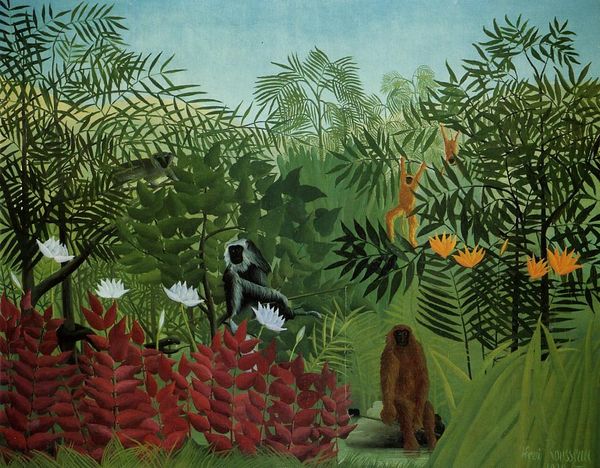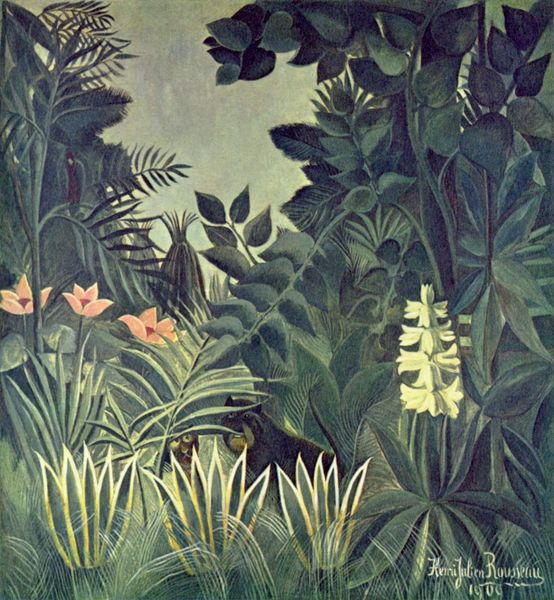
painting, oil-paint
#
painting
#
oil-paint
#
landscape
#
figuration
#
naive art
#
watercolour illustration
#
post-impressionism
Dimensions: 301.5 x 201.5 cm
Copyright: Public domain
Editor: Here we have Henri Rousseau’s “A Lion Devouring its Prey,” painted in 1905 using oil paints. The density of the jungle setting is almost claustrophobic, but the animals are strangely endearing despite the violent scene. How do you interpret this work? Curator: Rousseau’s jungles weren't born of direct experience, but rather from his imagination fueled by Parisian botanical gardens and popular imagery. This distance is key. He presents a "wild" scene filtered through a colonial lens – a staged encounter of the "primitive." Notice the flat perspective and almost theatrical arrangement of the plants and animals. What does this staged nature, devoid of lived reality, tell us about the construction of exoticism at the time? Editor: That's a compelling point! The artificiality does jump out now that you mention it. It's like a diorama representing a fantasy more than reality. Curator: Exactly! Consider the power dynamics at play. Western society's fascination with the “untamed” often masked exploitation and domination. Is Rousseau unconsciously reflecting or perhaps even critiquing this dynamic by presenting us with a contrived, almost cartoonish scene of savagery? What if the beast we are observing, the so called 'Lion' is not in the jungle but in a cage? What if that is his life, as a zoo animal, whose act we contemplate as if its true savagery. Editor: That really reframes how I see the painting. So, it's less about a literal depiction and more about exploring the psychological and social attitudes toward the 'exotic'? Curator: Precisely. Rousseau's dreamlike vision encourages us to deconstruct the Western gaze and to understand how perceptions of "otherness" are fabricated and manipulated. Editor: I see the painting with fresh eyes now, thinking about the complex historical framework that shaped it. Thanks for sharing these valuable points! Curator: Absolutely! Art always offers new insight into society and we should not be shy about examining that complexity!
Comments
No comments
Be the first to comment and join the conversation on the ultimate creative platform.
